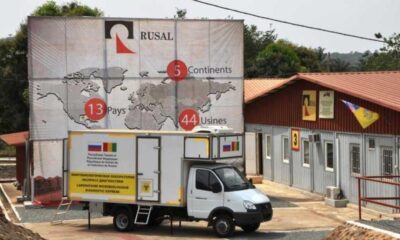Economic Issues
Foreign Aid -By Suleiman Lawan Kolomi
The most challenging aspect is poor coordination of these aids. In 2005, DAC agreed to some principles to mitigate the poor coordination in the Paris Declaration on Aid Effectiveness: lead role by developing country to design and implement its own strategies, donors’ alignment with the strategies, harmonization, mutual accountability and a focus on results. Despite donors’ embrace of the principles, to date they have largely failed to put them into practice.

Foreign aid is an assistance that a country’s government and donor organizations provide to another country, mostly, from developed countries to developing countries. This assistance might be in form of money, loan, grant, humanitarian aid such as relief materials, training services, education, infrastructure building, food and supplies, healthcare, etc. The foreign aid is provided either directly from government to government (bilateral aid), or through multilateral institutions such as the United Nations (UN) and the World Bank.
This aid assistance can be traced back to the period of the cold war, where there were two main donor groups, centered on the United States and the Soviet Union. The Development Assistance Committee (DAC) within the Organization for Economic Co-operation and Development (OECD), as the coordination body of the Western industrialized countries and the Council for Mutual Economic Assistance (CMEA) for the Soviet Bloc. Each provides assistance to its allied states in the developing countries. Western foreign aid during this period served as a tool of donor country foreign policy, especially in the case of the United States. Emphasis was on large infrastructural projects, such as hydroelectric dams, in the 1960s and 1970s which failed to produce the expected benefits for the poor. As a result, donors placed greater emphasis in 1980s on meeting basic needs facing persistent poverty, donors focused on macroeconomic stability and liberalization, but that approach has proved disappointing. At the end of the cold war and the Soviet Bloc the West had much opportunity to redirect its spending into more productive areas- international development that shaped New World Order, based on democracy, good governance and free markets. The US’s ‘unipolar moment’ also changed the nature of foreign aid. E.g., donors placed greater emphasis on democratization and peace building and those efforts soon proved disappointing as well. In the new millennium (in 2000), two events reshaped the nature of foreign aid and justified increased expenditure: the United Nations adopted eight Millennium Development Goals (MDGs) and the 11 September 2001 attack led many donors to reorient their development assistance to countries that played a vital role in ‘war on terror’. US invasion of Iraq and Afghanistan made them top aid recipients of foreign aid in the world and yet they still remain an epicenter of human tragedy. Donors used aid with limited success to try to ‘win hearts and minds’ in conflict areas, rather than fight poverty per se. The most challenging aspect is poor coordination of these aids. In 2005, DAC agreed to some principles to mitigate the poor coordination in the Paris Declaration on Aid Effectiveness: lead role by developing country to design and implement its own strategies, donors’ alignment with the strategies,
harmonization, mutual accountability and a focus on results. Despite donors’ embrace of the principles, to date they have largely failed to put them into practice. Emerging donors, even if they endorsed the principles as aid recipients, they do not want to be bound by them when providing assistance of their own. In fact, they do not all share the basic concept of altruism and thus, the criticism that the aid has been a tool to control and subject the developing countries to certain political and economic conditionalities rather than fighting poverty as the donor and the develop countries appeared to claimed.
Suleiman Lawan Kolomi (M.Sc. in-view)
Department of Sociology
Bayero University, Kano
suleimankolomi@gmail.com


















